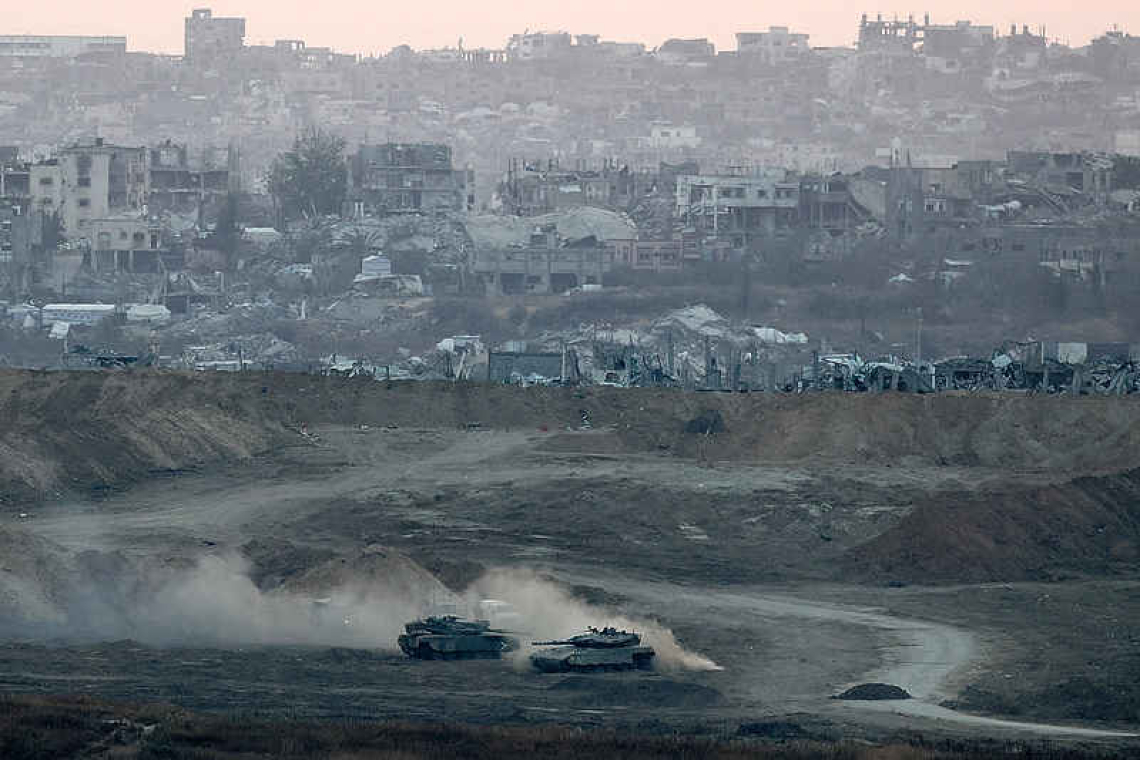JERUSALEM--Israeli Prime Minister Benjamin Netanyahu said on Monday an expanded offensive against Palestinian militant group Hamas would be "intensive" after his security cabinet approved plans that may include seizing the Gaza Strip and controlling aid.
However an Israeli defence official said the operation would not be launched before U.S. President Donald Trump concludes his visit next week to the Middle East. The decision, after weeks of faltering efforts to agree a ceasefire with Hamas, underlines the threat that a war heaping international pressure on Israel amid dwindling public support at home could continue with no end in sight.
A report by Israel's public broadcaster Kan, citing officials with knowledge of the details, said the new plan was gradual and would take months, with forces focusing first on one area of the battered enclave.Netanyahu said in a video message the operation would be "intensive" and would see more Palestinians in Gaza moved "for their own safety".
He said Israeli troops would not follow previous tactics based on short raids by forces based outside Gaza. "The intention is the opposite," he said, echoing comments from other Israeli officials who have said Israel would hold on to the ground it has seized.
Israeli troops have already taken over an area amounting to around a third of Gaza, displacing the population and building watchtowers and surveillance posts on cleared ground the military has described as security zones, but the new plan would go further.
One Israeli official said the newly approved offensive would seize the entire territory of the Gaza Strip, move its civilian population southward and keep humanitarian aid from falling into Hamas' hands.The defence official said aid distribution, which has been handled by international aid groups and U.N. organizations, would be transferred to private companies and handed out in the southern area of Rafah once the offensive begins.
The Israeli military, which throughout the war has shown little appetite for occupying Gaza, declined to comment on the remarks by government officials and politicians.Israel resumed its offensive in March after the collapse of a U.S.-backed ceasefire that had halted fighting for two months. It has since imposed an aid blockade, drawing warnings from the UN that the 2.3 million population faces imminent famine.
The defence official said Israel would hold on to security zones seized along the Gaza perimeter because they were vital for protecting Israeli communities around the enclave.But he said there was a "window of opportunity" for a ceasefire and hostage release deal during Trump's visit.
"If there is no hostage deal, Operation "Gideon Chariots" will begin with great intensity and will not stop until all its goals are achieved," he said.
Hamas official Mahmoud Mardawi rejected what he called "pressure and blackmail"."No deal except a comprehensive one, which includes a complete ceasefire, full withdrawal from Gaza, reconstruction of the Gaza Strip, and the release of all prisoners from both sides," he said.







